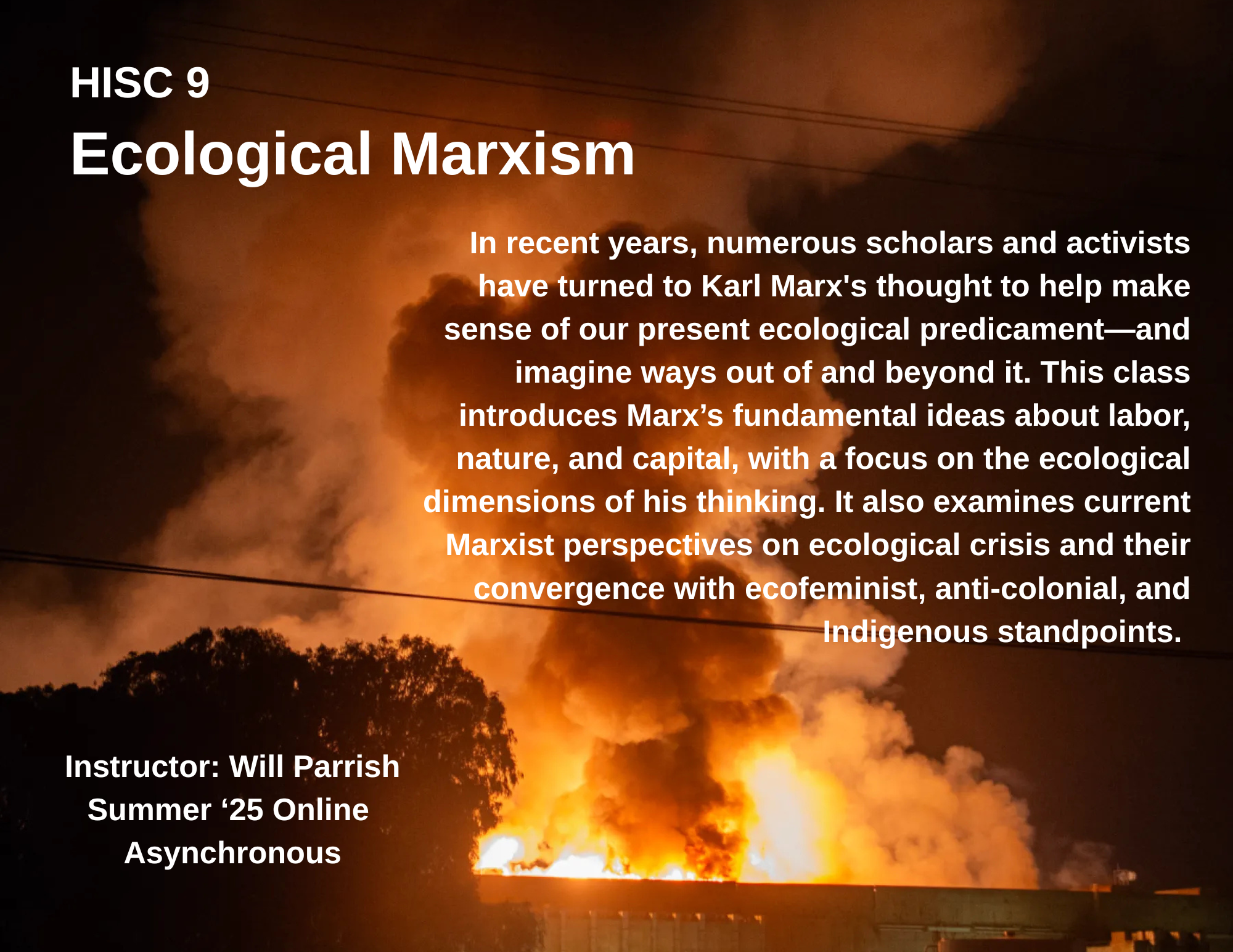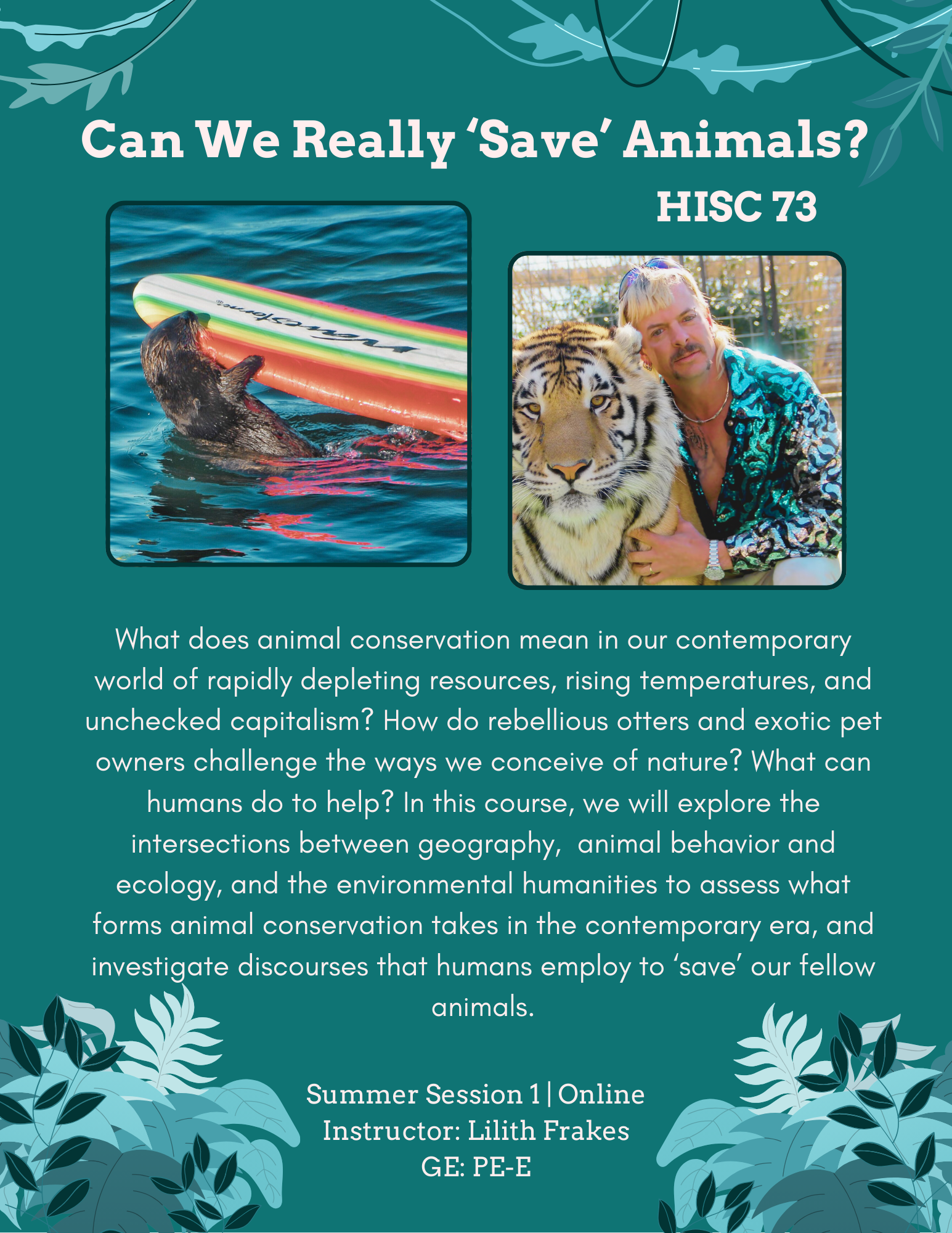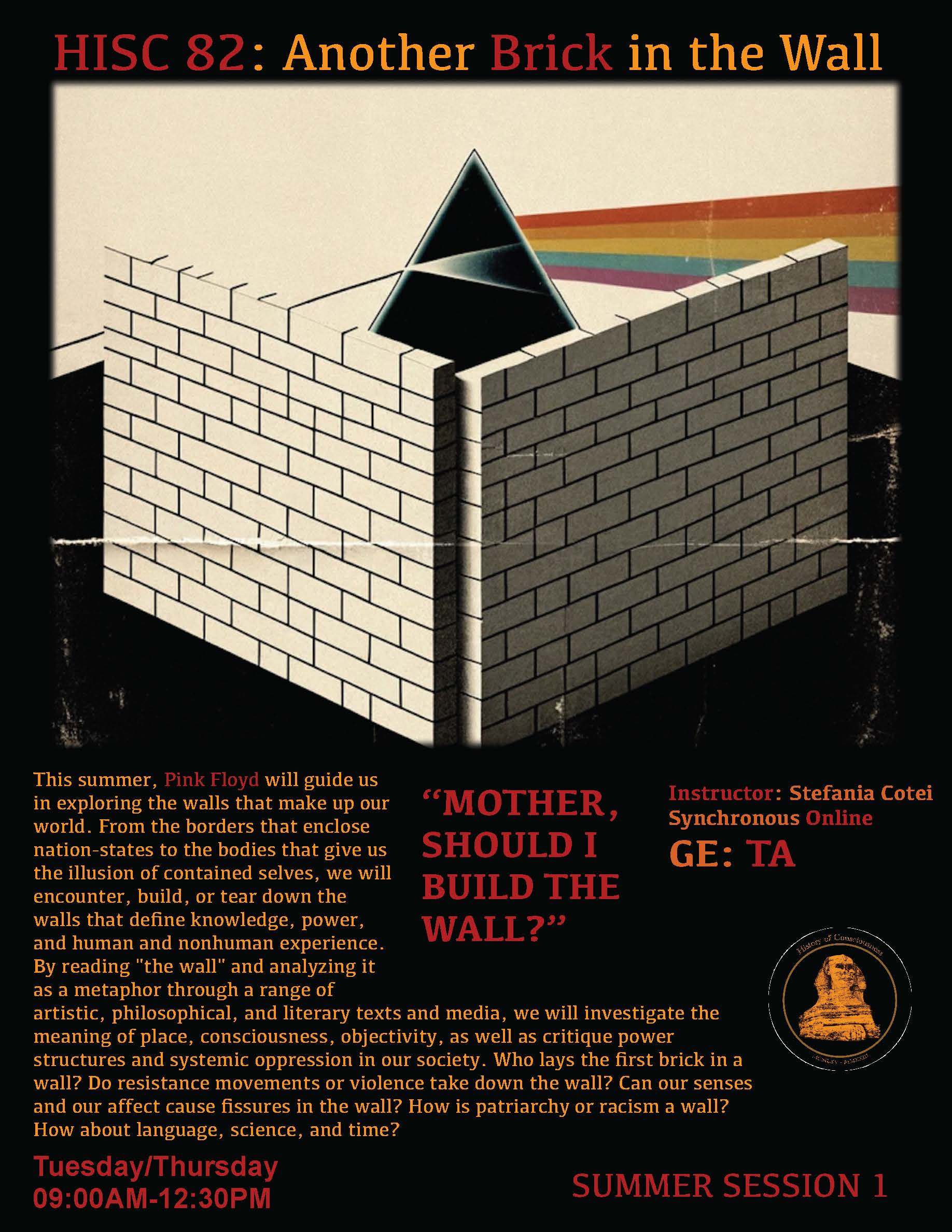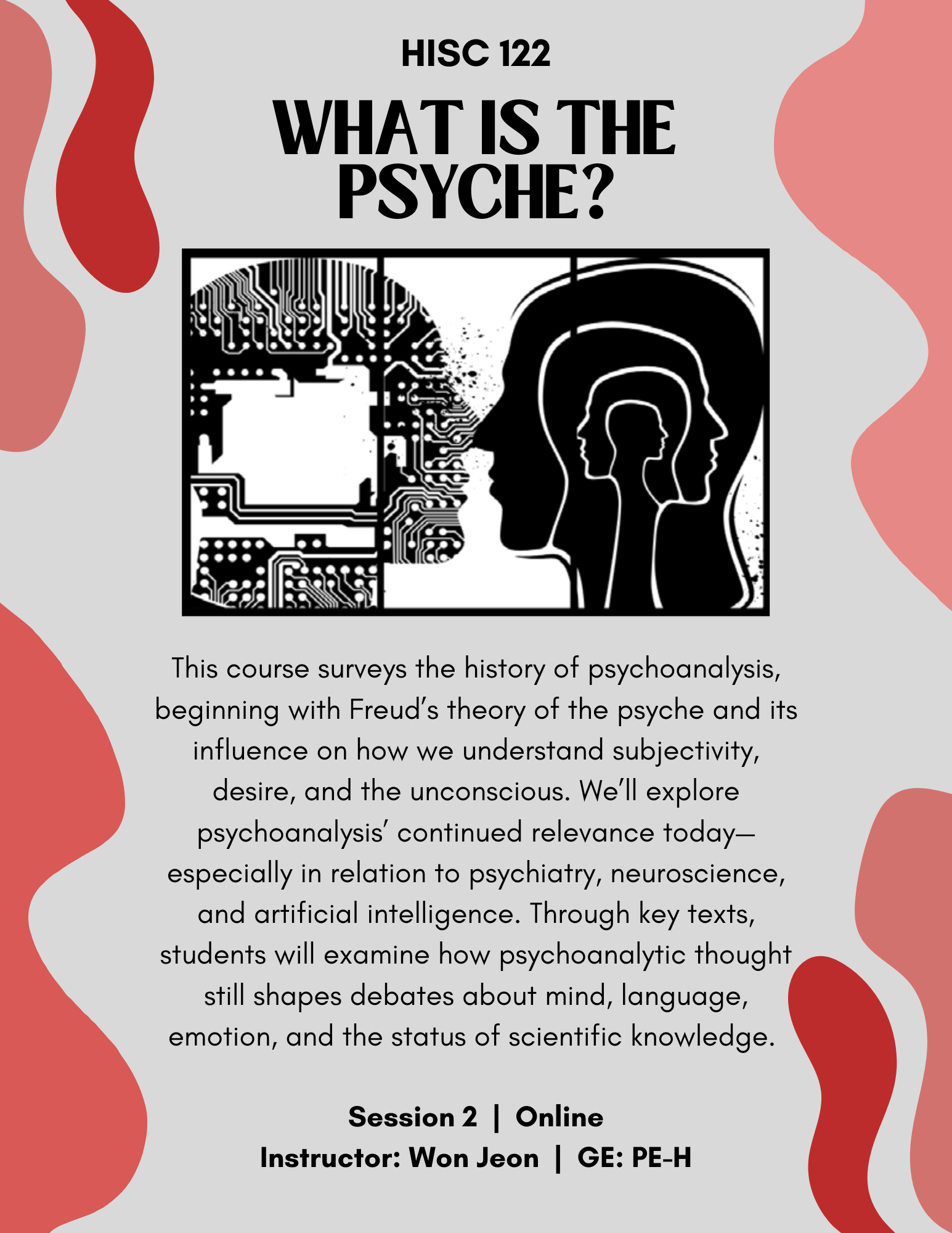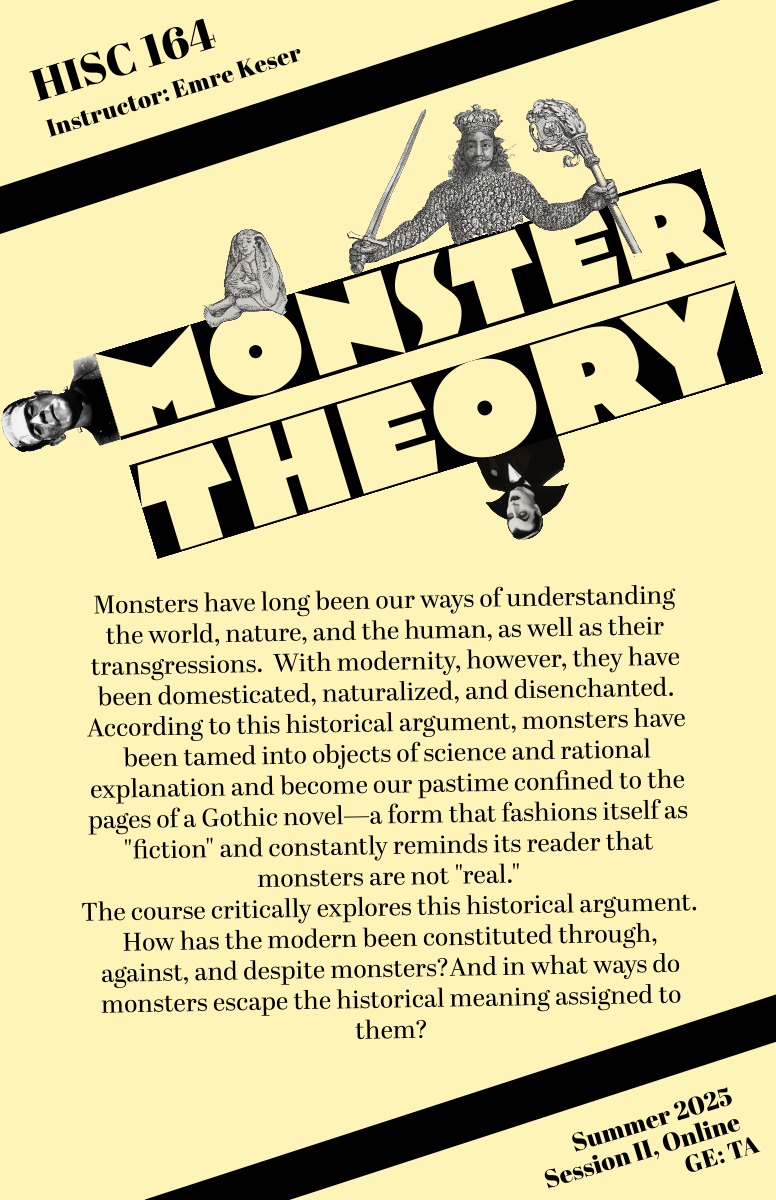Summer Session 2025
Enroll on Summer Session website!
Lower Division
HISC 9: Ecological Marxism
No GE ; 3-unit course
In recent years, numerous scholars and activists have turned to Karl Marx's thought to help make sense of our present ecological predicament—and imagine ways out of and beyond it. This class introduces Marx’s fundamental ideas about labor, nature, and capital, with a focus on the ecological dimensions of his thinking. It also examines current Marxist perspectives on ecological crisis and their convergence with ecofeminist, anti-colonial, and Indigenous standpoints.
HISC 73: Can We Really 'Save' Animals?
GE: PE-E
In this course, we will explore the intersections between geography, animal behavior and ecology, popular media, and the environmental humanities to investigate discourses that humans employ to ‘save’ our fellow animal in the modern era. Together we will navigate the competing interests and actors that come into conflict in the world of animal conservation, and the possibilities of survival in our entangled futures.
HISC 82: Another Brick in the Wall
GE: TA
We will explore what walls make up our world; what they divide, defend, and imprison; or how they solidify and perpetuate not only power, but also limits that protect us. By reading “the wall” through a range of artistic, philosophical, and literary texts and media, we will investigate the meaning of place, consciousness, objectivity, and critique power structures and systemic oppression in our society.
Upper Division
HISC 122: What is the Psyche
GE: PE-H
This course explores the social, philosophical, and scientific relevance of psychoanalysis in a historical overlap with the development of postwar cybernetics, information theory, systems theory, and cognitive science through the 20th century. We will explore how concepts such as the unconscious, the ego, language, desire and drive, repetition, conflict, and transference converge with cybernetic models of purposiveness, prediction, cognition, learning, communication, and information.
HISC 132: How to Break a Nation: De/Anti/Post-Colonial Discourses
GE: ER
Today, far-right forces across the globe are advocating against international regulations and universal rights in the name of decolonization. Historically, national liberation movements also sought emancipation through nationalist claims. In this course, we will study seminal texts on nationalism, anticolonial, postcolonial and decolonial theory, while paying attention to the political and ethical stakes reflected in the prefix choice, and apply our knowledge to concrete historical cases to better understand the relationships between nationalism, the modern state and emancipation.
HISC 164: Monster Theory
GE: TA
At the turn of the nineteenth century, the “modern era” witnessed the birth of monsters in fiction. This course will examine the ways the popularity of the novel interacted with the rise of nation-states, industrial capitalism, and the projects of colonialism, and how monsters came to be tools through which ideas of religion, science, gender, and sexuality are constructed and subverted.
